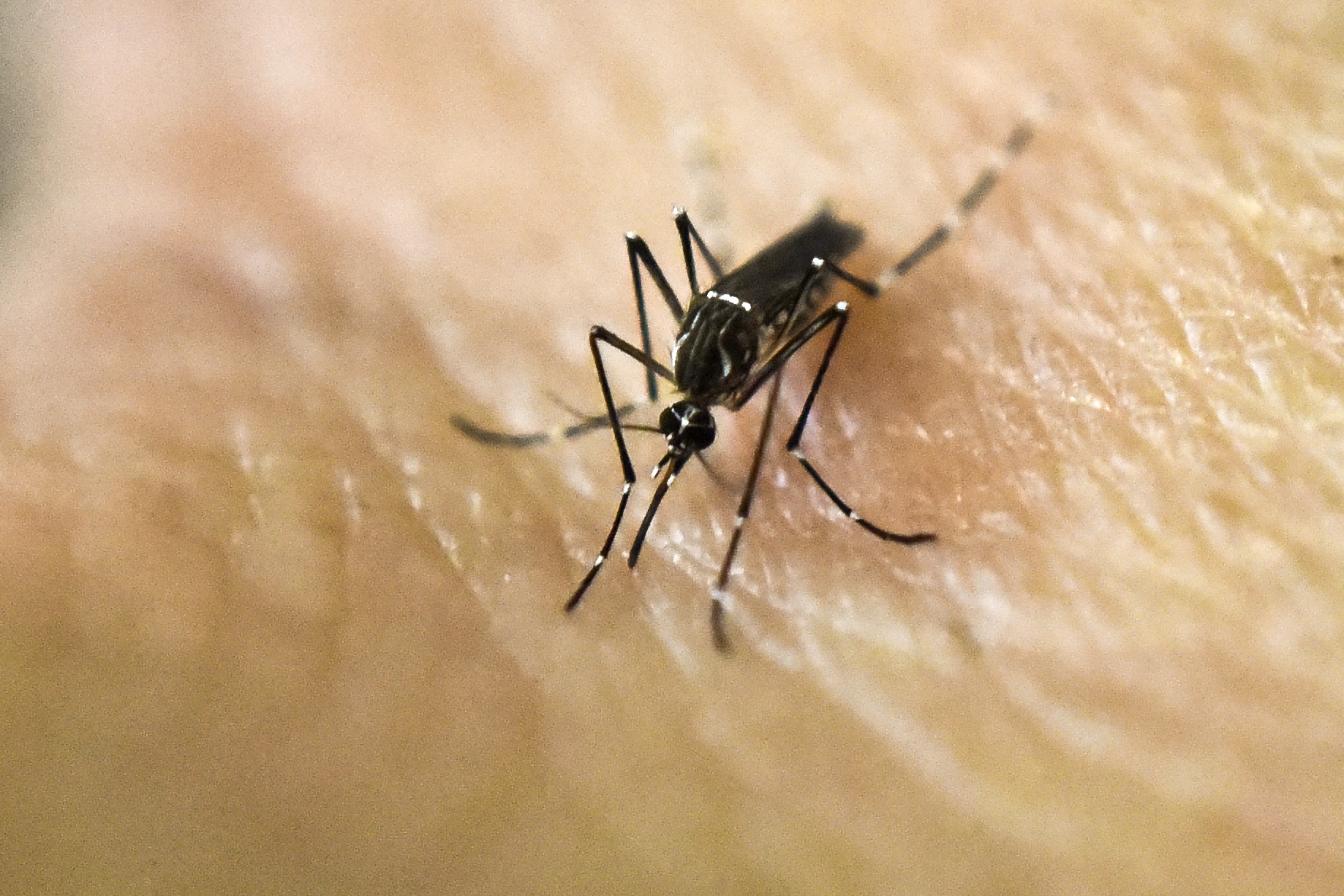HATTIESBURG, Miss. — While city and county officials are working diligently to keep the mosquito population under control, they say community members also need to do their part to help stop the insect, known to be a transmitter of dangerous diseases.
"We’ve started early," Forrest County Board of Supervisors President David Hogan said. "We’ve been spraying for a couple weeks now.
"We are planning on spraying for extra hours and using more chemicals."
The county also is putting out "larvae bricks," a type of insecticide that kills mosquito larvae before they can grow to active, mobile adulthood.
The bricks are dropped into areas of standing water, where they dissolve and kill the larvae.
Hogan said Forrest County residents with standing-water issues can call the county barn to have larvae bricks delivered to their homes.
Lamar County Administrator Jody Waits said educating the public on standing water is essential to keeping the mosquito population down.
"Everybody’s got to work together," he said.
Hattiesburg Mayor Johnny DuPree said he encourages residents to be proactive and help the city with mosquito control.
"We encourage people to call us if they see standing water," he said. "And now that we've had this flooding, people do call. We use larvicide as quickly as we can.
"We try to be proactive instead of waiting until the mosquito comes."
The City of Hattiesburg has stepped up its mosquito-control efforts the last few years, increasing its budget two years ago to purchase new equipment and a new vehicle, and last year increased its spraying budget to help keep the spread of mosquito-borne diseases down. This year is no different.
"We have intensified the spraying, and started spraying earlier," DuPree said.
The city routinely checks drainage ditches "to make sure they are clean and water is flowing through there," he said.
DuPree encourages anyone who suspects they may be infected with the Zika virus to seek medical attention.
Even though outbreaks of Zika virus in Latin and South America recently put the insect in the global spotlight, in the Gulf South, it is a topic of daily conversation.
"Mosquito control is always a big thing for us, whether its encephalitis or the Zika virus or whatever other diseases are out there," Petal Mayor Hal Marx said.
"I don't think we are approaching it any differently this year."
The city continuously sprays pesticides targeting mosquitoes and drops chemical tablets in standing water. It sends some of its employees for annual mosquito-control training, where the various diseases and treatment methods are presented.
"We try to stay on top of it," Marx said. "Every year we send people to be trained in vector control and the latest chemicals."
Waits said Lamar County's mosquito control department also attends a mosquito-control seminar every year.
"At that seminar they discuss all the potential situations that could come," he said. "During (the seminar) the Zika virus had come up."
Waits said county officials continue communications with state health officials to make sure they are doing all they can to prevent an outbreak.
This year, even though there is little potential in Mississippi for a Zika virus endemic, officials are stepping up mosquito-control efforts.
"We'll probably do as much if not more spraying before mosquito season picks up," Hogan said.
Lamar County began spraying earlier this year, and is pre-treating standing water. The efforts are continued on a regular basis throughout the season. In addition, the mosquito control department treats affected areas after periods of rain.
"We want to make certain we are covering all our areas," Waits said. "As a governing body, we’re aware of the potential dangers. We're looking for every avenue to prevent (disease from spreading).
"The main thing is to kill mosquitoes."
Liz Sharlot, director of communications at the Mississippi State Department of Health, said there is little risk of a Zika virus outbreak in Mississippi.
To date, there have been three documented cases, but all three were infected during unrelated trips to Haiti. In addition, the mosquito species known to carry the Zika virus doesn't exist in the state.
"The Aedes aegypti has not been found in Mississippi since the mid-'80s," Sharlot said.
So far, Pine Belt officials are not planning to set aside extra money in case of an outbreak, but that could change, should the potential for risk increase.
Donald Yee, associate professor of biological sciences at the University of Southern Mississippi, has been hired by the Mississippi Department of Health to make sure the mosquito hasn't made a comeback.
"We don't have endemic cases of Zika in Mississippi," Yee said in an earlier story. "You really need a transmission cycle and we don't have the mosquito and we don't have the people who could possibly transmit it."
But Jerome Goddard, a medical entomologist at Mississippi State University, said he is concerned about finding cases of Zika virus this summer in Mississippi.
Goddard agreed that Aedes aegypti was common in Mississippi until about 1988, when Aedes albopictus was accidentally introduced here. However, he said, since that time, A. albopictus has for the most part displaced A. aegypti.
"The same thing is true for surrounding Southern states, but there are pockets of A. aegypti in Louisiana, Texas, and Florida, so we suspect there may be pockets of A. aegypti here as well," he said. "Right now, we’re conducting a statewide survey to determine if A. aegypti is here, and we’ll have results by August."
Goddard added that "A. albopictus is a proven vector of Zika (the Gabon outbreak and now Mexico), so there’s no reason to think the virus couldn’t get going here."
MSDH officials are preparing for the possibility of an outbreak.
Yee will be doing his mosquito surveying in the lower 23 counties of the state from May to August.
"I'm not very confident that we're going to find it, but if we do find it, it will be in larger cities like Jackson or Natchez, close to New Orleans," he said.
Sharlot said MSDH is working on various communication strategies and informational and educational material for the public as well as working with local government and health officials.
MSDH is talking to local health care providers about prevention and working with blood banks to keep the virus out of the blood supply.
Health department officials are working to make sure local governments are using the best vector control methods for eradicating mosquito populations. Vector controlencompasses a variety of methods used at the same time to attack mosquitoes in all stages of development.
MSDH also is working on a survey to see what steps are being taken to prevent the spread of the Zika virus.
"We are talking to our local communities to see what steps they are taking to be prepared if there was an outbreak," Sharlot said.
Contributing: USA TODAY reporter Liz Szabo.

![Zika virus aedes aegypti mosquito [image : 83674280]](http://www.gannett-cdn.com/-mm-/24a5d90ede413f88ee9a605a02a9d928f6142ec0/c=325-0-1759-1226/local/-/media/2016/04/28/Hattiesburg/Hattiesburg/635974685940012571-ELPBrd-04-27-2016-Times-1-A003--2016-04-26-IMG-551298549-7-1-D5E5R23D-L801289817-IMG-551298549-7-1-D5E5R23D.jpg)

